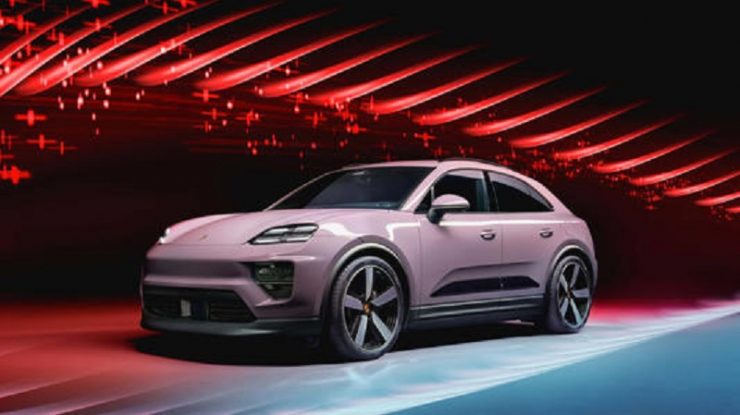WHEN the electric 2024 Porsche Macan finally arrives in dealers later this year, delayed after a series of software delays largely pinned on Volkswagen Group’s troubled Cariad division, it will mark something different for Porsche and its path to electrification.
With this new Macan, Porsche is integrating an all-electric drivetrain into one of its existing models (and existing model nomenclature) for the first time.
The company’s first electric car, the Taycan, was given a completely new name, while previous Porsche electric cars have mostly used some variation of the E-Hybrid identifier, often with matching Acid Green calipers and highlights.
Each automaker has a different approach to “transitioning” to electric cars. Some do new models, such as the Hyundai Ioniq 5 and Ioniq 6; others have more awkward designations like Audi’s “e-tron” badge.
But by giving the electric Macan the same name as the gas model – which effectively replaces it Porsche is taking a big step. Not so, here. The electric Macan will simply be a new Macan, specifically the Macan 4 and Macan Turbo for starters, filling two important gaps in the current model lineup.
The existing internal combustion engine Macan, plus the T, S and GTS flavors will all live on, sitting right next to the new, emissions-free flavors of Porsche’s smallest SUV. Why the change in branding strategy? Why not separate the electric Macan like the Taycan to be something different, or implement some kind of electric recognition like on the Panamera E-Hybrid?
According to Porsche Cars North America’s new CEO, Timo Resch, told me it’s time to ditch the EV identity, both in name and styling. I personally believe that the direction of not creating differentiated offerings based on design or naming is the way forward.
“In other words, it’s time to stop differentiating electric cars either through design or special names. I think we will see this direction in other industries as well. “We have of course seen hints from others, including Mercedes’ apparent decision to finally remove the EQ branding from its electric cars,” he said.
Audi, however, appears to be sticking with the e-tron name, at least for now. Audi, Porsche’s corporate cousin, is actually an important player in the new Macan story, as is the Taycan.
The electric Macan rides on a PPE platform that will also underpin the next-generation Audi Q6 e-tron. The two may have a slightly competitive relationship, as is the case with the Taycan and Audi e-tron GT.
“The cars are very different to maintain the brand identity. If you get into the electric Macan and drive it, you will immediately feel that this is a real Porsche,” he said.
Resch said that Porsche had “most of the responsibility” for developing the PPE platform, resulting in an electric Macan that feels right and was developed with learnings from Taycan owners.
He gave charging as an example, stating that 90% of American Taycan owners charge exclusively at home at low speeds, perhaps meaning Porsche’s prized 800-volt charging isn’t a big selling point here.
“Even though Taycan sales are strong, setting a new record of 12,744 in the final quarter of 2023, that trend in the US electric car market is softer than he would like. We see there is demand,” he concluded. [sources/photo special]
















